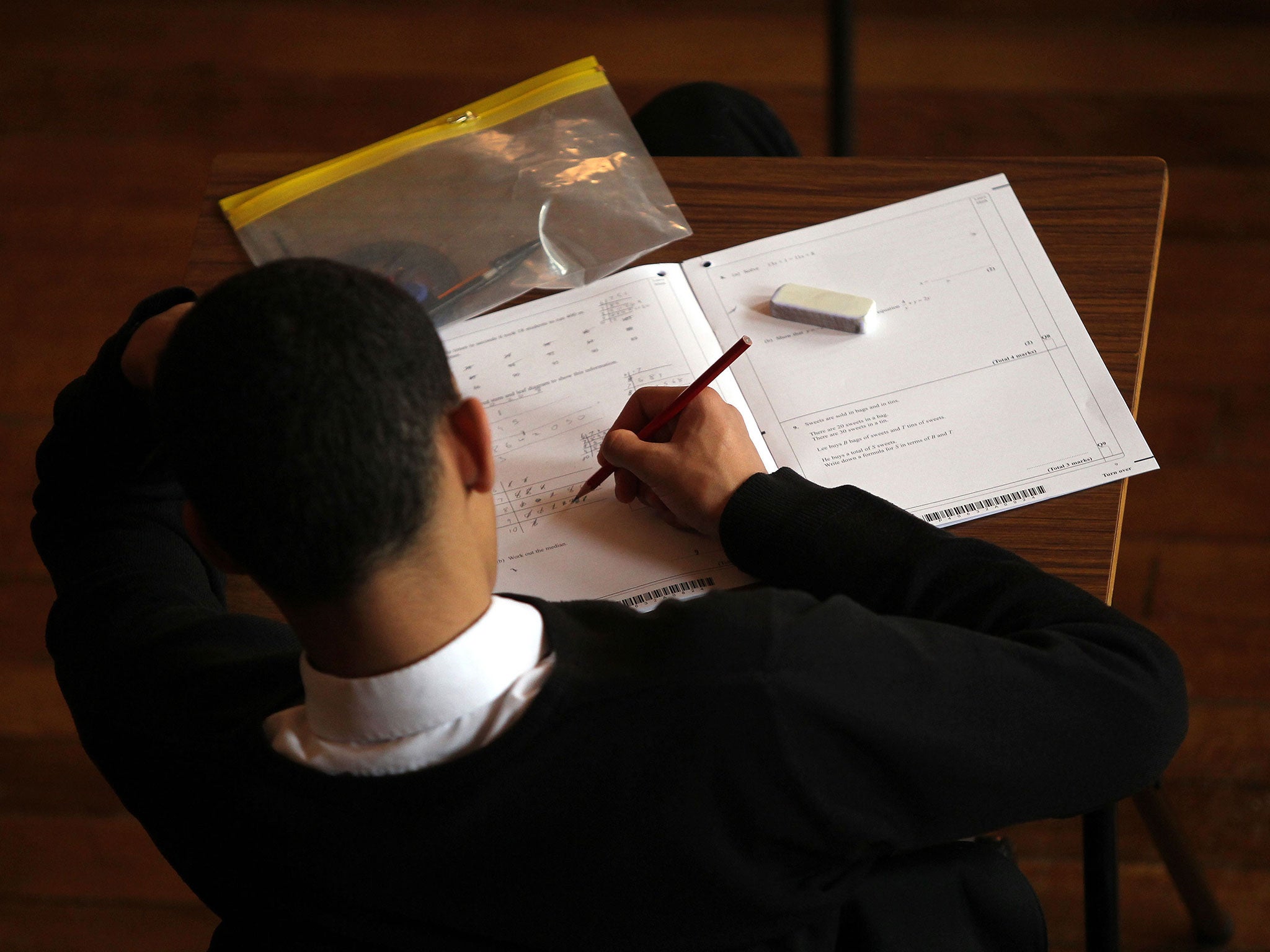Michael Gove’s maths exams are too hard and must be rewritten, regulator says
Ofqual found a 'significant risk' that exams drawn up by three out of the four main awarding bodies were too difficult for the full range of pupil abilities

Exam boards have been ordered to write new GCSE maths papers after an investigation concluded they were too hard for many students.
There was a “significant risk” that exams drawn up by three out of the four main awarding bodies were too difficult for the full range of pupil abilities, the exams regulator Ofqual found.
The regulator said that the exams would “not function well” and there was a “significant risk” that grade boundaries could not be set accurately. This could lead to unreliable grading of students’ work, it suggested.
The study found that the exams were successfully stretching the most able students but were too difficult for almost everyone else. “There is a significant risk that all but AQA’s assessments will be too difficult for the full range of ability for the cohort for which the qualification is intended,” Ofqual’s report concluded.
Three exam boards – OCR, Pearson and WJEC – have been told to rewrite papers to make them more accessible to pupils of all abilities, not just the most able. A fourth, AQA, has been told to make its papers aimed at the least able students more difficult.
The new maths GCSE is due to be introduced to schools and colleges this September as part of a major overhaul started by the Coalition to toughen up qualifications.
Former Education Secretary Michael Gove announced in 2013 that he wanted the exams to be made more difficult and brought into line with high-performing countries. Mr Gove said that reform was needed to include more challenging content in GCSE maths, to better prepare teenagers for A-levels and to provide employers with numerate employees.
Ofqual, which has accredited new maths courses, announced plans to investigate the sample GCSE maths papers after concerns were raised last year by exam boards that those of their rival board AQA were too easy.
However, the investigation found that it was the papers of the other three boards that were too difficult.
Sample papers were sat by 4,000 students as part of the study. Even the most high-performing schools, including one in which 100 per cent of students normally achieved at least a grade C, did badly in the new papers.
OCR, Pearson and WJEC have been ordered to rewrite their higher papers – aimed at more able students – as well as their foundation papers, taken by less able candidates.
The AQA exam board has also been told to make its foundation paper more difficult. But the allegations made by its rival boards that its papers were generally too easy were judged to be unfounded.
AQA’s chief executive, Andrew Hall, said: “Teachers can be absolutely confident that the approach we’ve taken all along is the right one. We’re happy to make the small changes Ofqual has asked for, and we’ll do this quickly so that schools can get on with teaching in just a few months.”
Number of 'Neets' at 10-year low
The number of young people not in education, employment or training (Neet) has fallen to a 10-year low. Just one young person in eight is now defined as a “Neet”, official figures showed.
Skills minister Nick Boles said the figures show the Government’s economic plan is working. But others said it was a “tiny victory” and there was more to be done to ensure no youngster is “slipping through the cracks”.
In total, 738,000 16- to 24-year-olds (12.3 per cent) were classed as Neet in the first three months of the year, down 174,000 on the same period in 2010.
Government statisticians suggest the figures show a mixed picture, as the number of 16- to 18-year-old Neets rose slightly, while those aged 19 to 24 fell.
Join our commenting forum
Join thought-provoking conversations, follow other Independent readers and see their replies
Comments
Bookmark popover
Removed from bookmarks